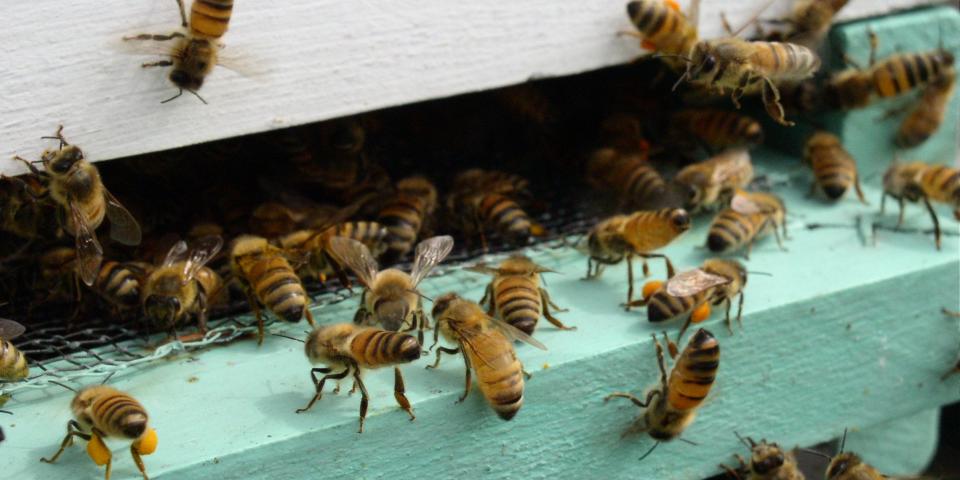- In:
- Posted By: jenifer
- Comments: 0

March is almost upon as and we're five weeks into our beekeeping course having covered swarm control last week. No doubt about it, our bees will want to swarm instinctively as it's their nature to do so, but we can look out for the signs and manage rather than watch the queen and half our bees leave and then have to go and collect.
As well as the homework David, our tutor, gives us I'm spending as much time as I can reading up on keeping bees to soak up as much knowledge as I can. At last week's session I picked up another book from the library called Bee Manual: The complete step by step guide to keeping bees by Claire and Adrian Waring. And guess what? It's a Haynes manual. Having tinkered with motorbikes for years, Haynes manuals are like old friends - they're there when you need them!
Something I've been thinking about of late is how a beginner goes about acquiring their first colony of bees. Earlier I mentioned that I will be resurrecting two old beehives at The Donkey Sanctuary where I work, so once the beekeeping course finishes with practical sessions at the apiary, it will be time to put in practice what I've learnt - for that I need a colony of bees.
There are a number of ways I can see to do this:
- Buy from a reputable supplier;
- Buy from a local beekeeping association; or
- Collect a swarm yourself (free).
As a beginner, the idea of collecting a swarm isn't at the top of the list to be honest. Having spent two hours last week covering swarm control alone, it's an important aspect of beekeeping we all need to know and try to control before it happens, so crossed off my list as a means of acquiring a ready-made colony.
That leaves either buying from a supplier or local beekeeper and out of the two, my preferred choice is definitely without a doubt to buy from a local beekeeper as I can see some advantages in doing this:
- You know the local beekeeper.
- You may be able to get a chance to meet the colony from which your bees will come from.
- You know the bees will be familiar with the pollen an nectar-rich food sources growing in your area.
- Beekeepers love their bees, so will be proud of their colonies and will want to pass on good-tempered bees.
Whichever of the three options above, one thing beekeepers need to guarantee is that the bees are free of any major disease - the four notable ones are:
- American foul brood
- European foul brood
- Small hive beetle
- Tropilaelaps mite
Any signs of these four diseases, then we are duty-bound by law to report to the relevant authority (for me it would be the National Bee Unit as I live in England). Sadly, bee colonies here in the UK all live with the varroa mite, so it's important to check when buying a colony that it has been treated.
Going back to the Haynes manual, it lists the main criteria we need to be aware of when buying a nucleus colony of bees. Basically, the nucleus should be in a position to increase in size when you buy. There should be a sufficient number of bees with a good amount of sealed brood that is nearly due to hatch, providing nurse and house bees for the colony and the age of the queen. An old queen will have a lower egg-laying rate and may not be able to lay quickly enough for the nucleus to expand rapidly.
So my decision is to buy from a local beekeeper, and our tutor mentioned that he is happy to provide a nucleus of bees, so I've taken him up on that offer, so nearer the time, will let you know how I get on in transferring the nucleus to a full-sized hive... talking of which, the two hives at work need a spring clean and will be looking at doing that over the coming weeks as well as ordering new frames for the brood boxes, foundation, etc in readiness for getting my first colony of bees. So exciting!
The image used above for this article was published under the terms of a Creative Commons License and is attributed to Rebecca Leaman.
